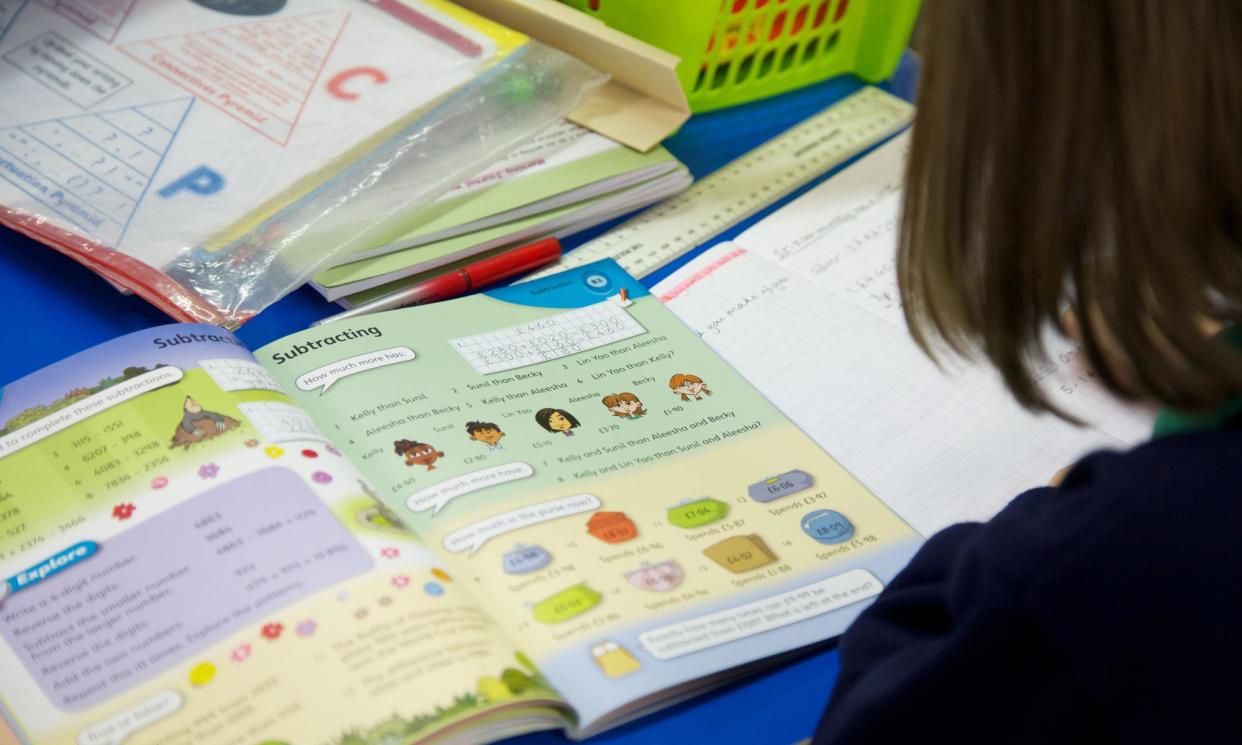Disadvantaged pupils further behind in maths since Covid, English study finds

Children from low-income families in England are further behind their peers in maths than they were before the pandemic, research suggests.
The attainment gap for disadvantaged primary school pupils in maths has grown from an average of 6.9 months to 8.7 months, the study by the thinktank the Education Policy Institute (EPI) and the software firm Renaissance Learning has found.
Outcomes in maths are also down on average for pupils overall, the study of primary and secondary school assessments in years 3 to 9 found. The problem equates to an average of four months of lost learning at secondary schools and two months in primary schools, the study said.
The study was conducted by comparing Renaissance’s Star Reading and Star Maths assessments from 2017-18 and 2022-23. It gives further evidence of the profound impact of Covid on vulnerable children whose support had already been cut back by austerity.
Geoff Barton, the general secretary of the Association of School and College Leaders (ASCL), said: “Schools have moved heaven and earth to support children in catching up with lost learning from the pandemic but as these results show this has not been an easy task, and in terms of maths that is likely to be because missing key elements of numeracy at an early stage makes later progress much more difficult.
“This analysis makes it even more frustrating that the government not only failed to provide sufficient investment in education recovery in the first place but is now pulling the plug on the national tutoring programme – which was its flagship recovery programme … Unfortunately, the government has decided that it is a case of job done when this is very clearly not the case at all.”
The study also looked at numbers of pupils eligible for free school meals for at least 80% of their time in school, which it classed as “persistently disadvantaged”. The proportion of primary-age pupils in this category grew from 8.9% before the pandemic to 13.3% in 2022-23.
Jon Andrews, the head of analysis and director for school performance and systems at the EPI, said: “This latest analysis shines further light on the disproportionate impact that the Covid-19 pandemic had on the outcomes of disadvantaged pupils, worsening already stark inequalities. These inequalities should be a significant concern for policymakers and education providers.
“The far lower outcomes for pupils who experience persistent disadvantage is a reminder of the importance of tackling child poverty as a root cause of the gap in academic outcomes.”
A Department for Education spokesperson said: “We know the pandemic had a significant impact on education globally, which is why we have made £5bn available since 2020 for education recovery initiatives, including the national tutoring programme.
“We are constantly seeing the success of our reforms. England ranked 11th in the world for maths, up from just 27th in 2009, and in May our primary-age children came fourth in the world for reading – making them the best readers in the western world.”

 Yahoo News
Yahoo News 
